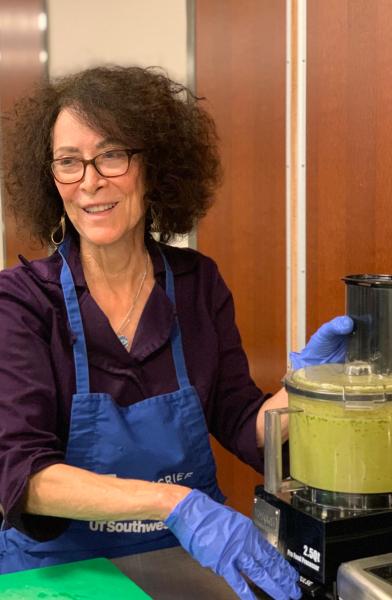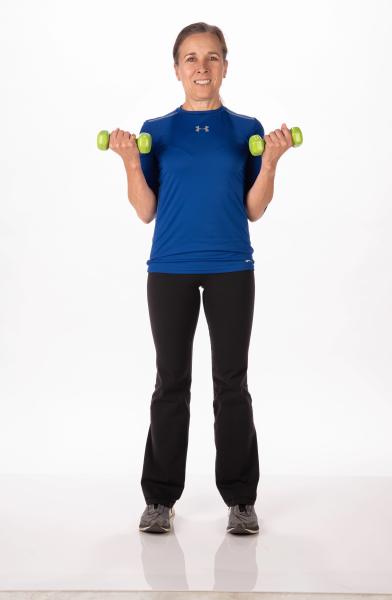According to the World Cancer Research Fund, about 20 percent of all cancers diagnosed in the U.S. are related to obesity, physical inactivity, excess alcohol consumption or poor nutrition. At Moncrief Cancer Institute, you can learn how to adopt a healthier lifestyle – even if you have already had cancer.
Diet and Nutrition
Healthy meals can taste great – just ask one of our dietitians, who offer nutrition counseling and free, hands-on cooking classes. Our professionals meet one-on-one with cancer survivors, sharing tips that make people feel better and reduce the risk of cancer coming back. They also help patients gain more energy during chemotherapy and other treatments.
We even offer a “Good Eating Guide for Cancer Patients” that’s packed with useful tips, ways to relieve common symptoms during treatment, recipes for delicious shakes and much more.
Find out more about our nutritional services.

Exercise and Training
Exercise is a proven way to lower your risk of cancer, but before starting any exercise program, obtain a doctor’s permission first. Once you’ve been cleared for exercise, we recommend that you choose an activity you enjoy.
Walking is a great way to start – especially if you haven’t exercised in a while. Wear a pedometer (or use a mobile app on your phone) and set a goal of 10,000 steps a day – about 5 miles – as you go about your daily activities.
We can help you develop an exercise program that’s ideal for your fitness level. We offer one-on-one consultations and sessions with a specialized fitness trainer for cancer patients and survivors.
Find out more about our fitness programs.

Sun Exposure
Skin cancer is the most common form of all cancers in the United States – and the number of cases continues to rise. Physicians and professional medical organizations recommend that you take the following precautions:
• Apply sunscreen with a sun protection factor (SPF) of 15 or greater 30 minutes before sun exposure and every few hours thereafter
• Wear sunglasses with total UV protection
• Wear protective clothing and hats
• Avoid direct sun exposure as much as possible during peak UV radiation hours between 10:30 a.m. and 3:30 p.m.
• Perform self-exams regularly to become familiar with existing growths and to notice any changes or new growths. Contact your physician if you notice any changes
• Be a good role model and foster skin cancer prevention habits in your children – 80% of a person's sun exposure is acquired by the age of 18
